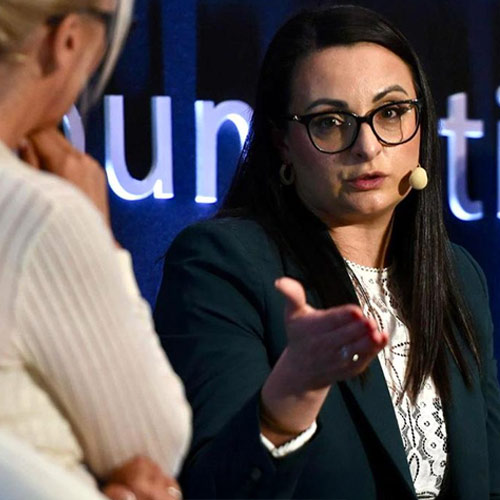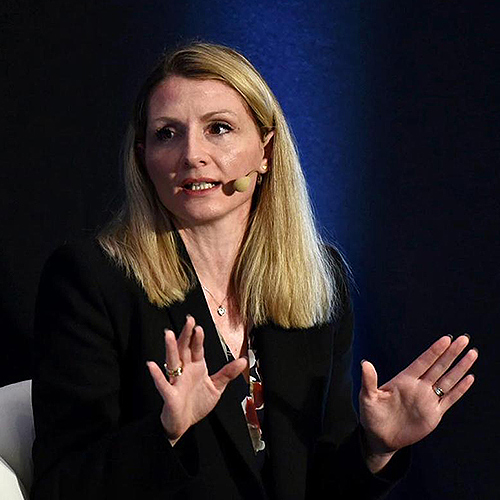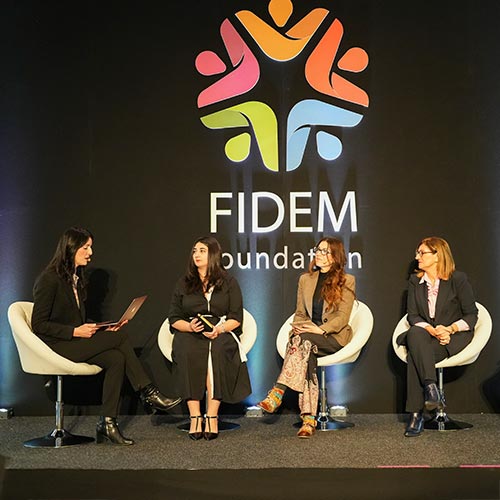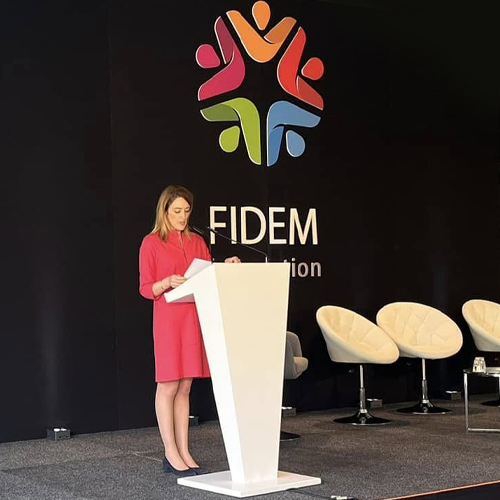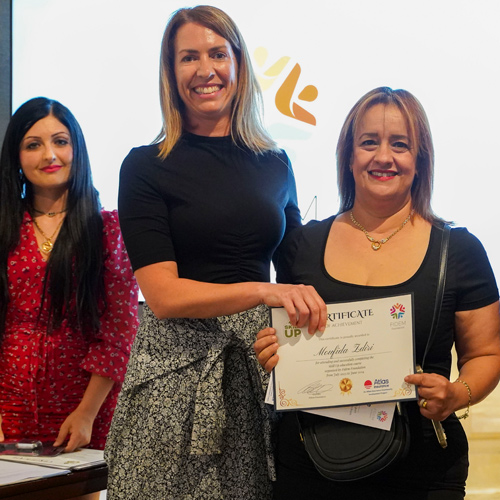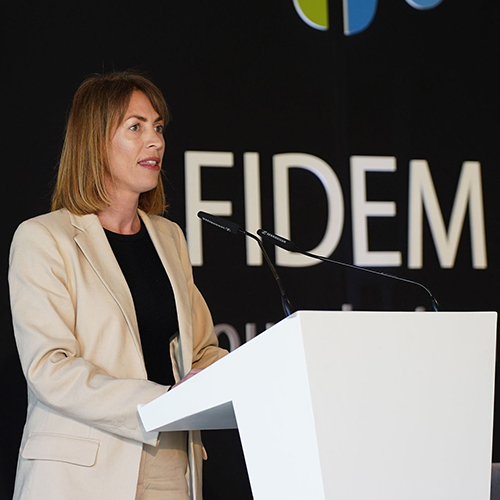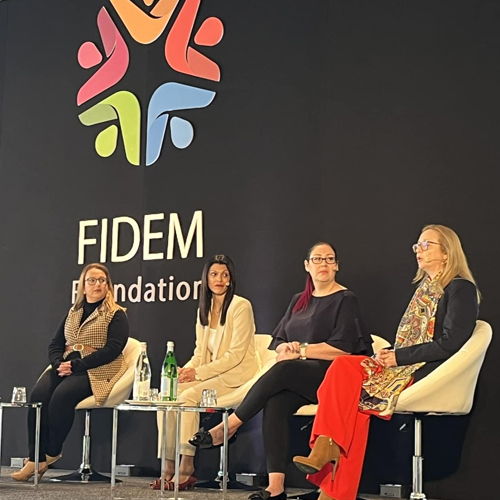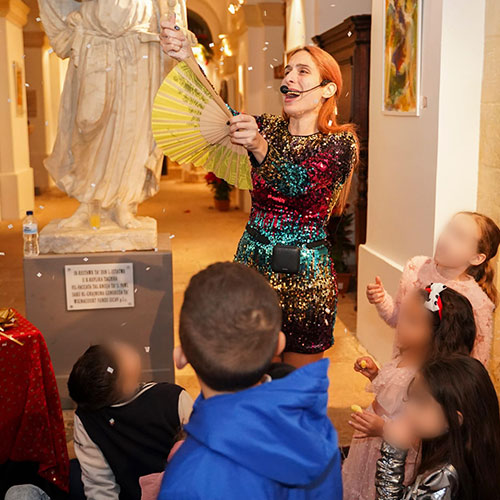“I prefer living in colour”. David Hockney’s impish statement is at once an allusion to creativity, self-awareness and the lack of conventionality. As members of the public, we can ascribe different interpretations to the artist’s utterance, including his actual love of colour, which was extensively used in his paintings. Yet the presence of many and varied colours usually conjures up a sense of vitality, brightness and good cheer.
As soon as you type in the address for FIDEM’s website, you are greeted by a logo displaying a fluid, paint-enriched design featuring different vivid shades – tangerine, poppy, violet, azure, peacock blue, lime green and lemon. The logo is energising, pleasant to look at and hopeful. This latter sentiment is one of the most beautiful sensations that the women and children residents of the care homes supported by the FIDEM foundation can feel. It is no mean feat for them to experience this kind of emotion, considering the terribly dark situations they have fled from. The charity foundation collaborates with a number of institutions and care homes for women and children who have found themselves in desperate situations brought about by abuse, violence, a lack of resources – financial and otherwise – and a complete absence of support. Amongst others, it works with the Ghabex Emergency Shelter in Birkirkara, the Dar Sagra Familja Children’s Home in Zabbar, the Ursuline Creche and Fatima House in Sliema, Dar Qalb ta` Gesu, a halfway house, in Santa Venera, and a domestic abuse shelter, Agenzija Appogg, in Gwardamangia. FIDEM Charity Foundation is the brainchild of Dr. Sabine Agius Cabourdin, a legal consultant and expert in commercial and property law, who has been involved in philanthropy ever since she can remember.
FIDEM’s logo is wholly enlivening. Its many hues inspire a sense of wonder and chance, imbuing the viewer with the notion that we are in the here and now, in the world, and that things can be achieved with a little bit of will and determination – but support is always needed, and that is where FIDEM comes in.
Statistics relating to experiences of domestic violence and abuse are nothing if not alarming. For instance, it has been reported locally that even though twelve percent of women have experienced intimate partner violence, only a further 14% of this sample actually reported the violence. No-one is immune to situations involving aggression and brutality in a familial setting. Although the less-educated and financially dependent and unstable are infinitely more vulnerable in this case, professional individuals, educated ones, business people, educators, people possessing beauty, fame and fortune have all experienced cruelty of this sort. Again, statistically, the main victims are female, though of course it goes without saying that men have suffered abuse too. Well-publicised cases in the international press featuring stars such as Rihanna, although sobering, have at least contributed to a certain amount of awareness. Sadly, domestic violence continues to rear its ugly head – which is why it is of paramount importance for victims to know that there are places they can turn to for aid, that offer a lifeline for when sufferers are at their lowest point. FIDEM helps by offering its assistance to these centres, both in the form of actual financial aid as well as the provision of pro bono educational and construction services. Other than the logo, as you browse the organisation’s website, you are struck by the gorgeous colours displayed in the photo gallery, all emanating from the crafts that the residents of the care homes – adults and children alike – have fashioned with their own hands. They are present in dolls, Christmas decorations, whimsical cardstock and vellum paper flowers and brilliant charms hanging from pretty, delicate bracelets – just a few examples of the wonderful ways in which the creativity of the residents is allowed to shine through. This, in itself, demonstrates how the foundation helps in terms of putting a spotlight on these women’s potential – and, more importantly, giving them a sense of self- worth to realise it themselves, and to go on to do other and better things.
It is not only about learning to develop their dexterity and artistic talents, however – FIDEM recognises the vital importance of education and the impact that it has on people’s lives, especially women and children who have found themselves at their lowest ebb, with no place or person to turn to. The organisation prioritises training and instruction in all forms – for instance, granting the residents special vouchers redeemable for courses relating to anything from driving large vehicles, such as buses, developing language skills, improving their computer literacy and so on. The crucial point is for the residents to understand – after much counselling and therapy to overcome the traumas they have experienced – that they can and will be able to accomplish anything that they set their minds to, with the right encouragement. It is this message of affirmation and positivity that the foundation, above all, wishes to embed in the residents’ consciousnesses – the idea that yes, they have come out of black depths, but that they can move forwards and upwards, equipping themselves with the necessary competences that will render them more employable and increase their career opportunities.
FIDEM’s dazzling, vibrant logo represents the courage and hopefulness that the foundation aims to stimulate in its residents. One day at a time, it is helping these strong women and children learn to colour their lives.
.png)
